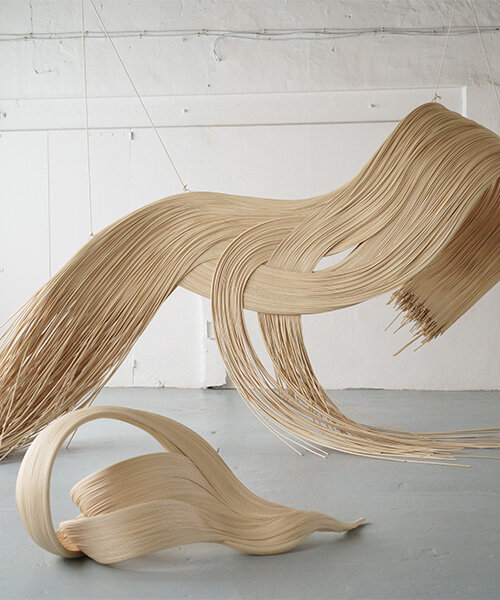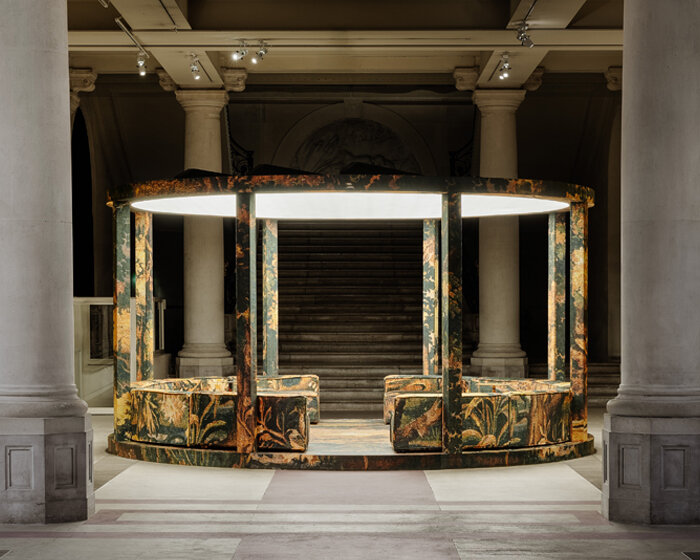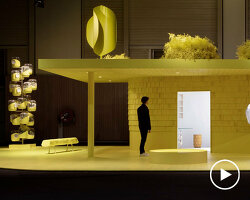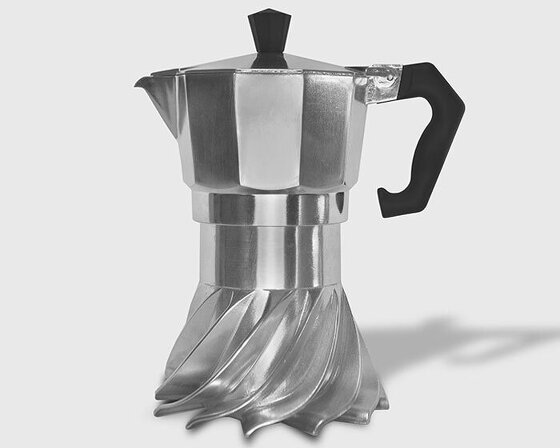Maison&Objet Rising Talent Award 2024
Technological strides, epitomized by the likes of artificial intelligence and 3D printing, have granted contemporary designers with new modalities for creation. The Maison&Objet Rising Talent Award 2024 pays homage to young designers and researchers navigating the realm of digitally enhanced creativity. This year’s iteration strategically classifies winners into two distinct categories: ‘Tech Talents,’ lauding those adept at skillfully leveraging cutting-edge production methods, and ‘Savoir-faire Talents,’ recognizing individuals who masterfully fuse traditional craftsmanship with emerging technology. The honorees collectively mirror the dynamic interplay between legacy craftsmanship and the impending digitally-shaped future, providing the design community with a glimpse into the future of creativity.
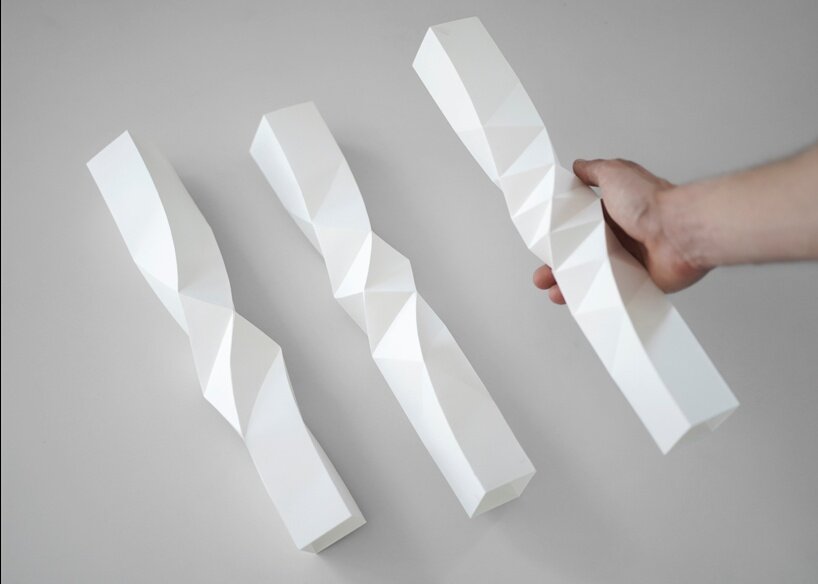
Maison&Objet’s Rising Talent Award 2024 pays homage to young designers and researchers navigating the realm of digitally enhanced creativity (pictured: robotic paper sculpting by WINT Design Lab)
all images courtesy of Maison&Objet unless stated otherwise
Maison&Objet, the organization behind its titular Paris-based trade shows and online platform, hosts the Rising Talent Award to recognize emerging designers. This prestigious award, a cornerstone of Maison&Objet’s annual initiatives, is juried by expert practitioners from leading universities and institutions, as well as past winners. This edition follows the overarching theme of Maison&Objet’s January 2024 event ‘TECH EDEN,’ reflecting on the intersection of technology and design that defines the current era.

Studio Line & Raphaël emerges as 2024 Rising Talent Craft award winners
The awardees’ work sits in a space between the future and the past, the digital and the analog. Driving the recognition of their projects are the distinct ways in which the creatives balance ‘know-how’ with ‘high-tech.’ Attributing to traditional craft, ‘know-how’ refers to processes that take a long time to acquire and marks them with historical significance. ‘High tech’ signifies the new, cutting-edge practices that leverage modern technologies to explore new processes, materials, and digitally-enabled methodologies.
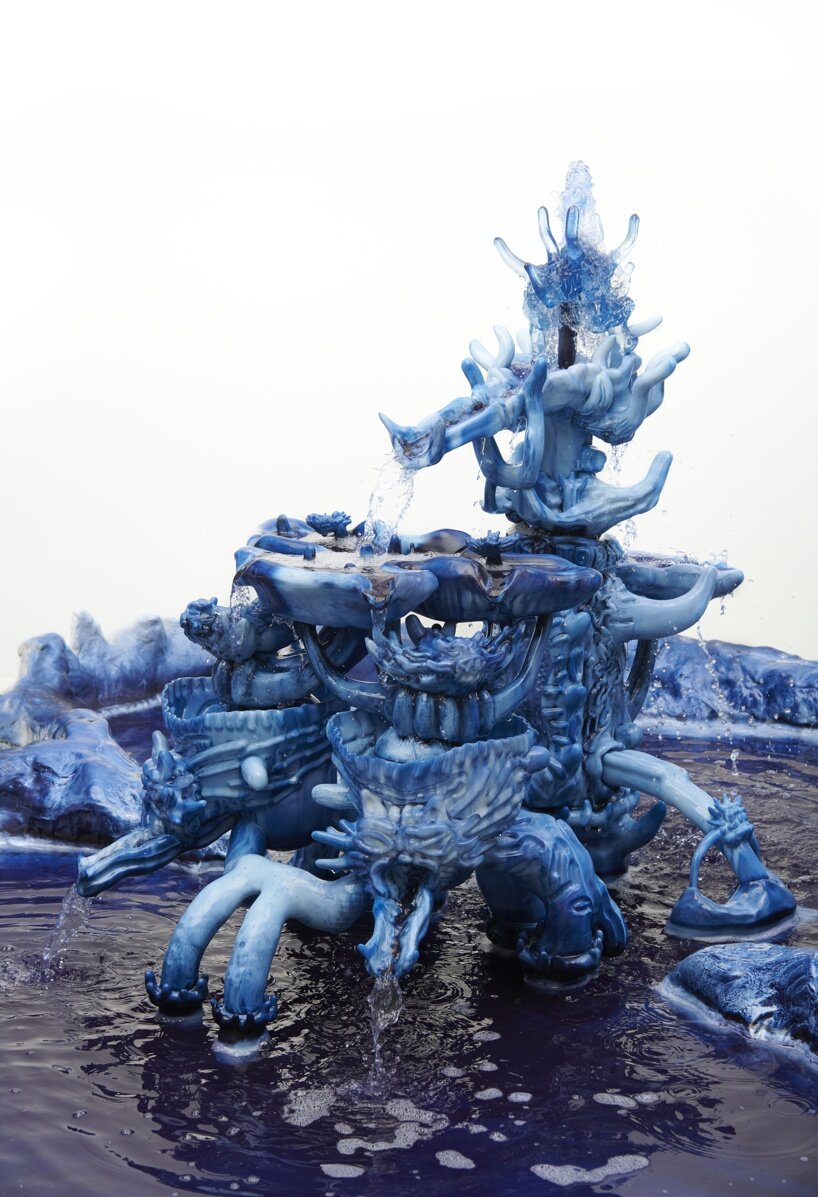
driving the recognition of their projects are the distinct ways in which the creatives balance ‘know-how’ with ‘high-tech’ (pictured Audrey Large, ‘Dusky Waters of Dripping Disasters’, 2019)
Tech Talents
In the ‘Tech Talents’ category, Audrey Large, a frequent feature at Milan’s Galerie Nilufar, creates fantastical spatial works that challenge perception. Crafted by herself in her Rotterdam workshop, the creations’ swirling, brutalistic shapes create an aesthetic that sits between the real and digital realms. Her sculptural pieces, brought to life with 3D printing, experiment with the near-infinite modeling capabilities within design software.
Seeing that her work is steeped in digital creation, Large remarks that she, ‘[learns] online by connecting with communities and open-source software. Unlike craft, which is taught by masters, this learning is very horizontal and participative, with total freedom.’
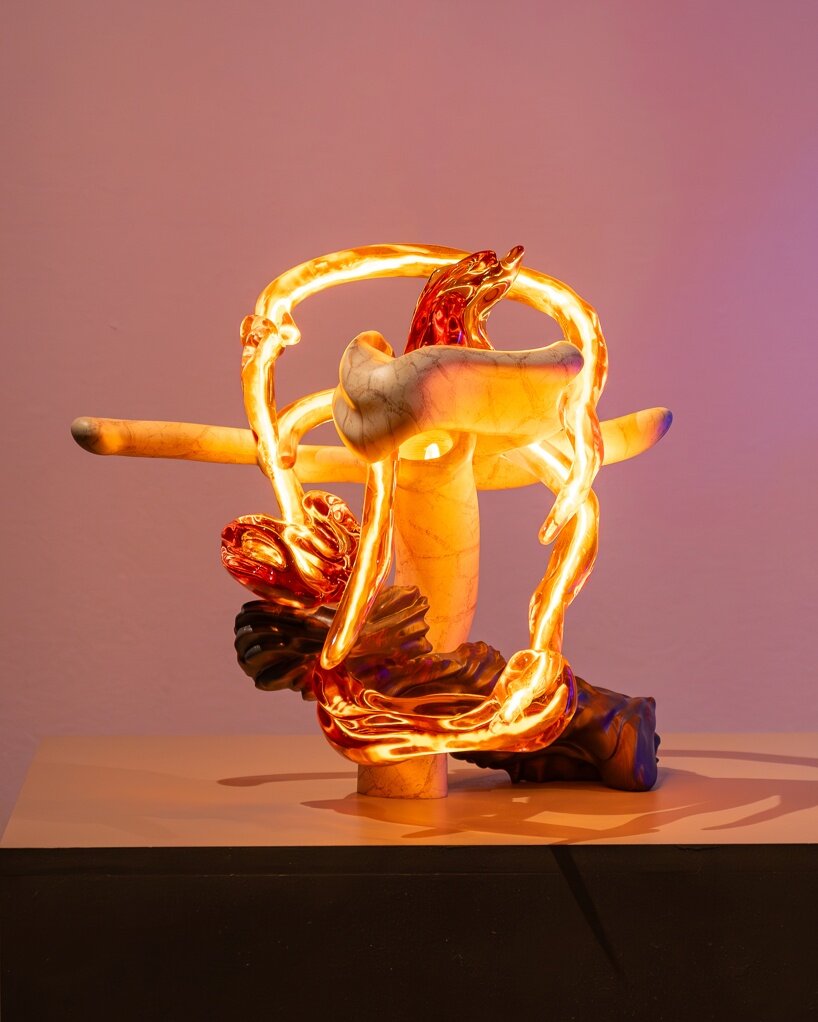
Audrey Large creates fantastical spatial works that challenge perception | image credit UniversPlaza
Following this theme is Felix Rasehorn and Robin Hoske’s experimentations in their self-founded WINT Design Lab. Collaborating with emerging technology companies and academics, they apply niche research to designed objects. Cutting-edge explorations like robotically sculpted paper and waterproof jackets made of collagen found in cows’ intestinal tissue characterize their output.
Rasehorn describes their process by saying, ‘we looked for scientists who didn’t know where their research might be applied, so that we could help them put it into context. A designer’s approach opens up a world of possibilities. We work with technicians, biochemists, software developers and materials scientists to find practical ways of building a more desirable and ethical future.’
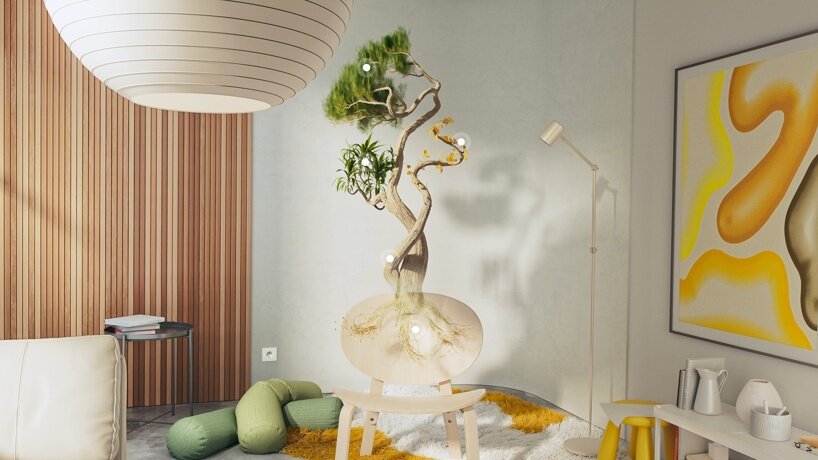
collaborating with emerging technology companies and academics, WINT Design Lab applies niche research to designed objects | image credit Zunc Studio
Crafting timeless design typologies, Nelson Fossey skillfully integrates 3D printing and modeling technologies into his creative process. His journey began in 2017 as a resident at Les Ateliers de Paris, a talent incubator that laid the foundation for the establishment of his design studio, Index Office (IO), in 2019. Since then, IO Studio has collaborated with institutions, brands, and manufacturers to deliver products characterized by refinement and sophistication.
Despite the studio’s appreciation for the precision offered by modern tools, Fossey emphasizes, ‘…what I like is when the result doesn’t show the use of these tools. I necessarily draw by hand, and then I design a programme
that generates formal versions, making the project as malleable as clay. Sometimes there are fortunate accidents.’

Nelson Fossey integrates 3D printing and modeling technologies into his creation of timeless design typologies | image credit © Index Office
Savoir-faire Talents
Exploring new methods with traditional handicraft, the ‘Savoir-faire Talents’ emerge with creative forms by using familiar materials and techniques. Building on her prior endeavors with cotton and latex, Aurélie Hoegy has shifted her focus to rattan, crafting furniture pieces characterized by a common theme of movement. She adeptly embraces circular practices and embodies organic aesthetics.
On the way that digital machines enhance her traditional materials, Hoegy notes, ‘I use a 3D printer to design or adapt my tools to the specific nature of the material and my parts. When I go to scale 1, I take into account both the natural and mechanical reactions of the fiber, letting it live and express itself. It is a collaboration!
She creates a living design: the hand and the unexpected reactions of the rattan give it a special vibrancy.’
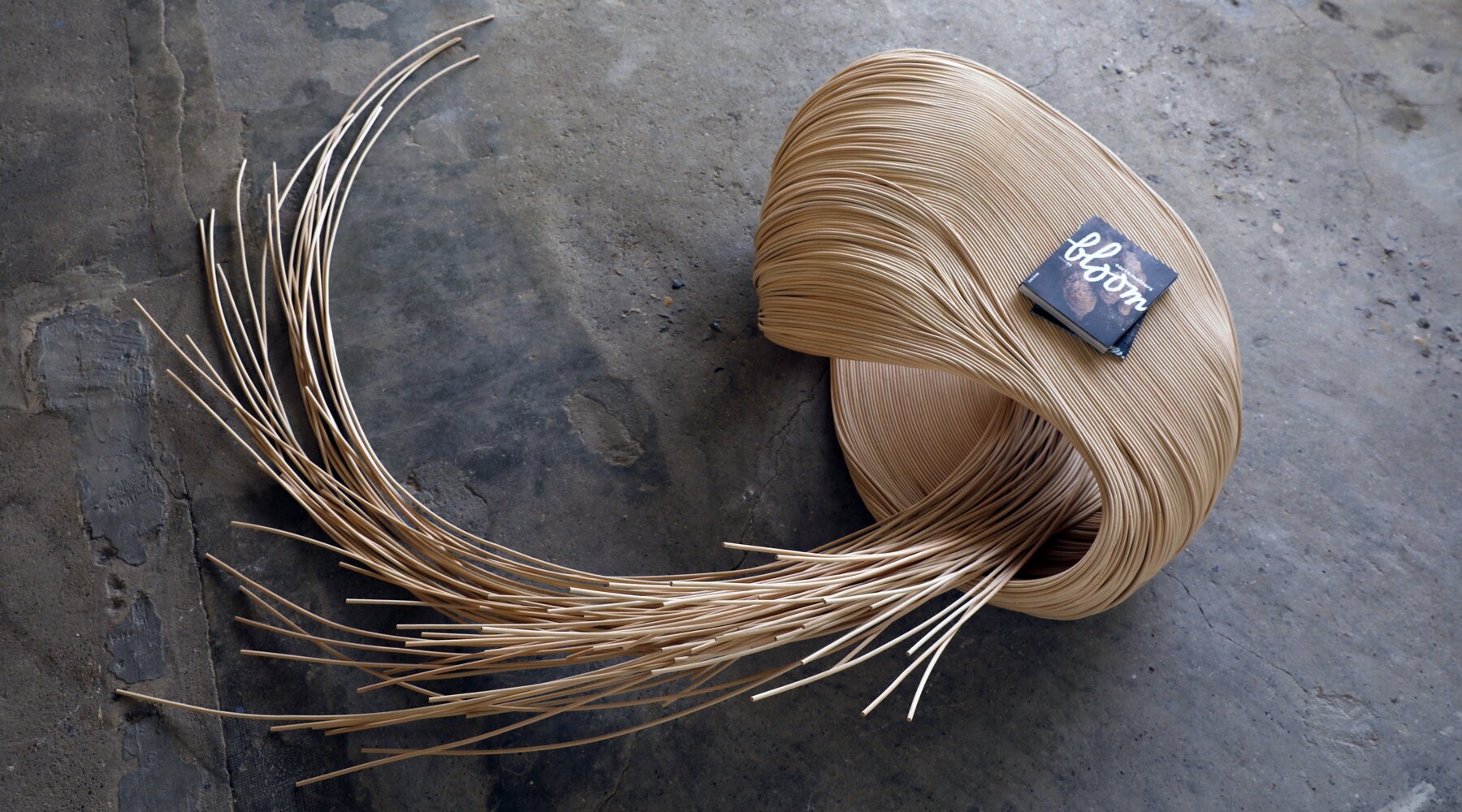
Aurélie Hoegy, known for her rattan work, receives acclaim for embracing circular practices and organic aesthetics | image credit Bruno Pelarin
French artist Jenna Kaës practices in collectible design, studying funerary crafts and the spiritual dimension of objects. With surrealist, iconographic imagery incorporated throughout her work, Kaës seeks to sever an object’s direct ties to religion and instead highlight the universal spirituality of them. She consistently showcases her work at Galerie Southway Studio in Marseille, actively participates in responding to public calls for tenders, and holds a coveted position among collectible design talents at the intersection of art and design, as featured in the publication by French Cliché.
In her work, Kaës frequently collaborate with experts well versed in their spiritual craft. At Maison&Objet, she will be, ‘showing Night Thoughts I and II, blankets made in collaboration with the Carmelite sisters from the convent in Verdun, France … With the Carmelite nuns, we embroidered these successive rooms to evoke the passage from reality to dreams.’
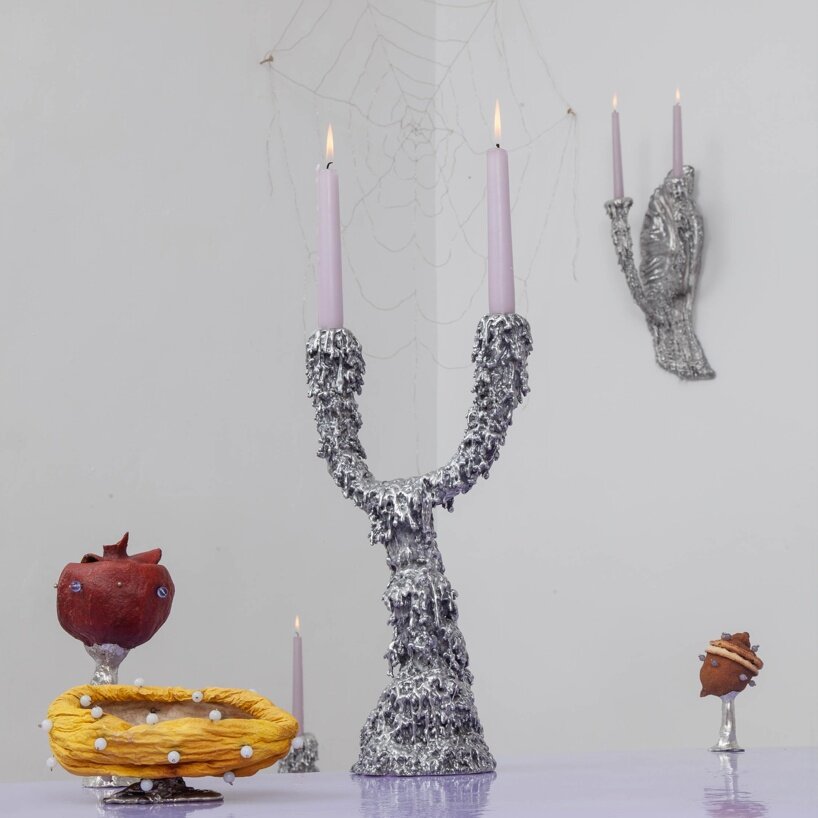
with surrealist, iconographic imagery, Kaës seeks to sever an object’s direct ties to religion and instead highlight their universality | image credit Emile Barret
Focusing on a circular approach, Emma Cogné weaves plastic tubes, initially collected from the street or from building sites, and increasingly from factories. In these tapestries, Cogné redefines the use case for this highly industrial, mass produced product. She creates her works in a former factory near Brussels, in one of the workshops made available to a community of craftsmen by designer and interior architect Lionel Jadot.
In transforming this material, Cogné remarks that, ‘the polypropylene sheaths I use are designed to protect the electrical wires in our homes. They are part of invisible elements, hidden in walls and floors. I reintegrate them into interiors by giving them an ornamental dimension… I’m reintroducing subtlety and emotion into this very down-to-earth and functional industrial material.’
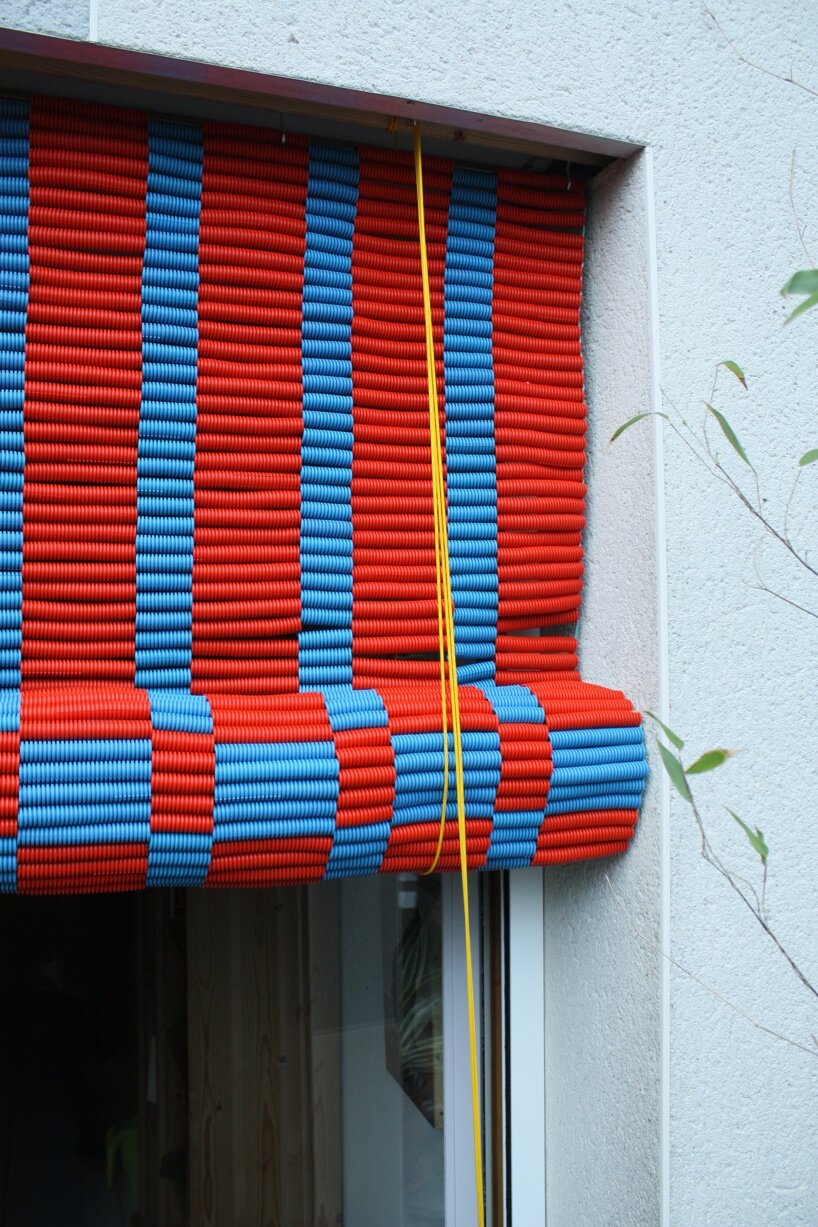
Cogné’s woven work redefines the use case for electrical tubing – a highly industrial, mass produced product | image credit Twin blind © Emma Cogné
Studio Line & Raphaël, helmed by Raphaël Cuevas and Line Pierron, emerges as the winners of the 2024 Rising Talent Craft award. The synergy between Cuevas’s woodworking proficiency and Pierron’s product design acumen culminates in the creation of avant-garde 3D marquetry furniture and ornaments. Their workshop serves as the incubator for this unique blend of design, craftsmanship, and new technologies.
Raphaël remarks on the process, ‘marquetry is a very old technique, but our approach is very new. We’ve taken it from 2D to 3D, in volume, with more complex shapes… Once the motif has been established, Line [Pierron] codes everything to make a digital cut, which saves us time and allows us to duplicate the models.’
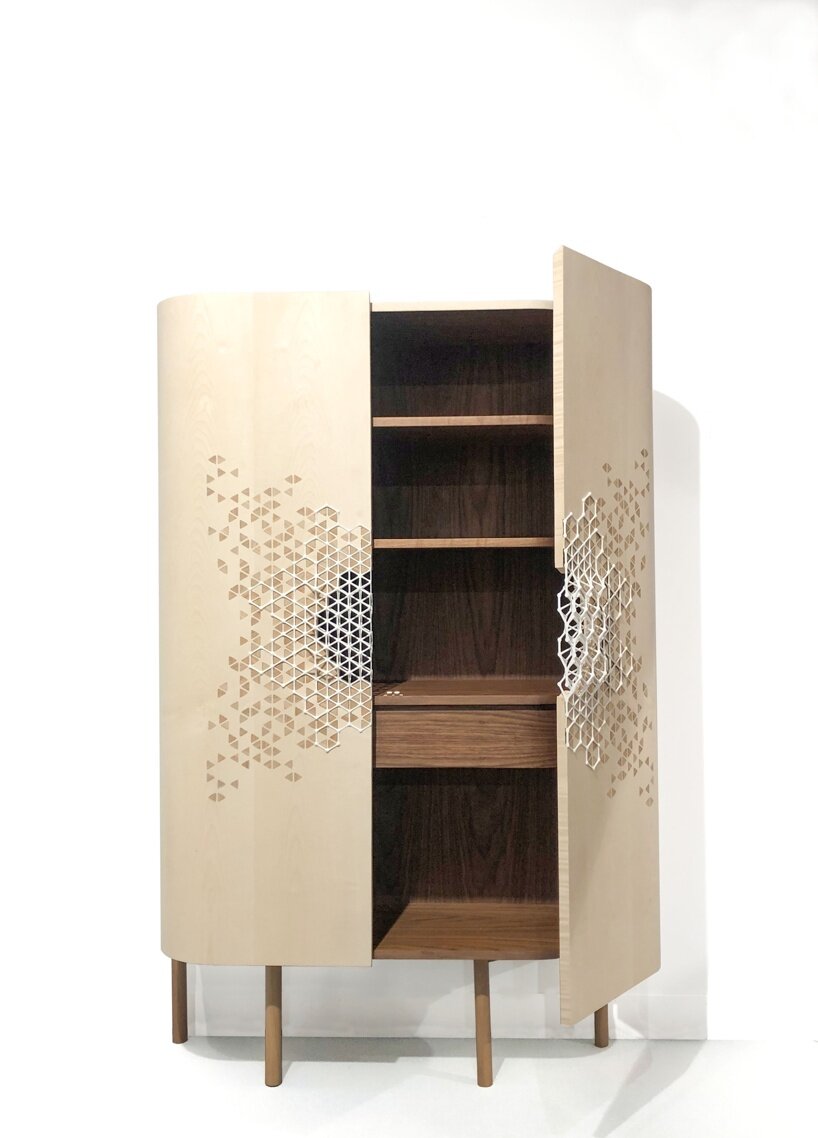
winners of the 2024 Rising Talent Craft award, Cuevas’s woodworking and Pierron’s product design acumen creates their avant-garde 3D marquetry furniture
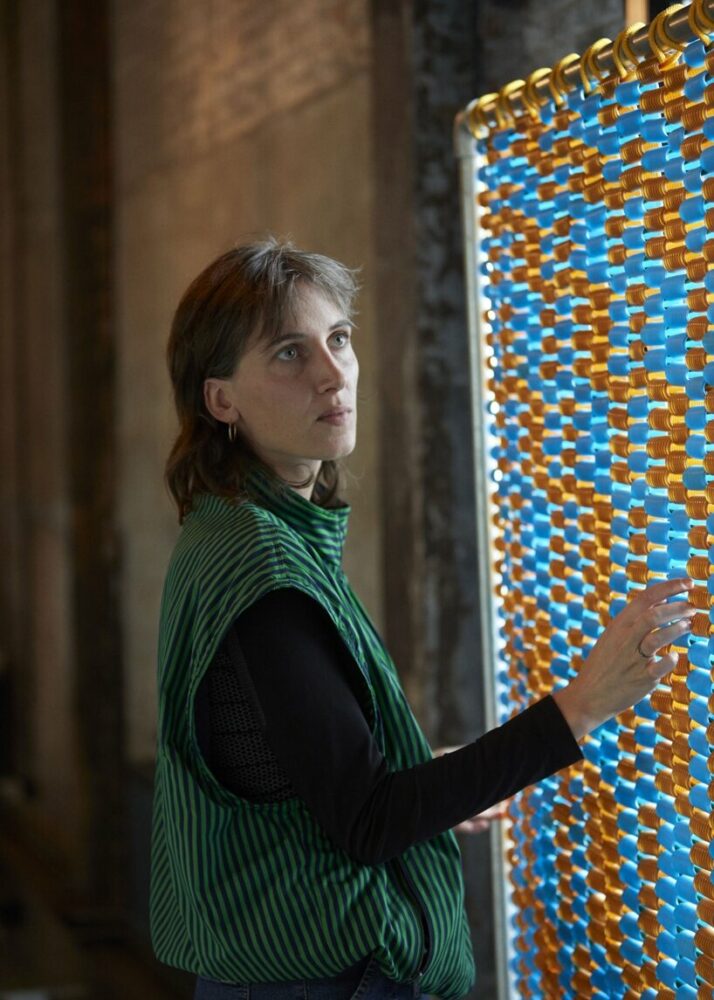
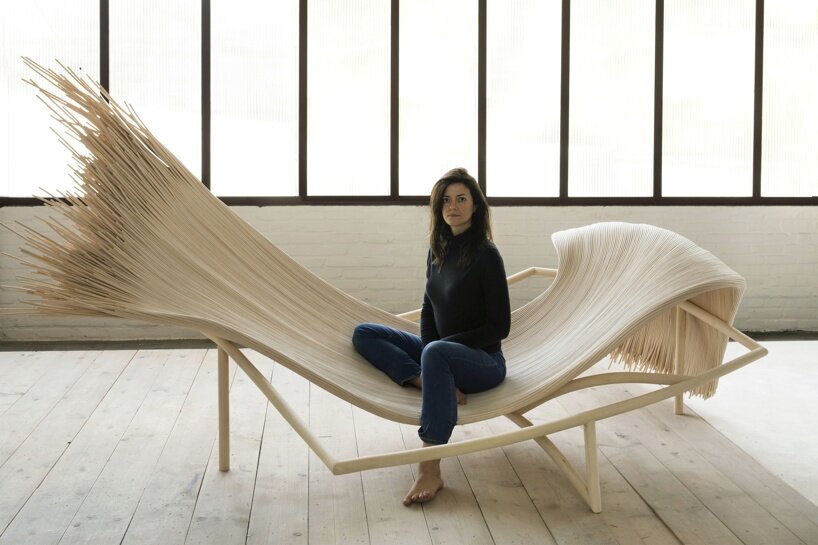
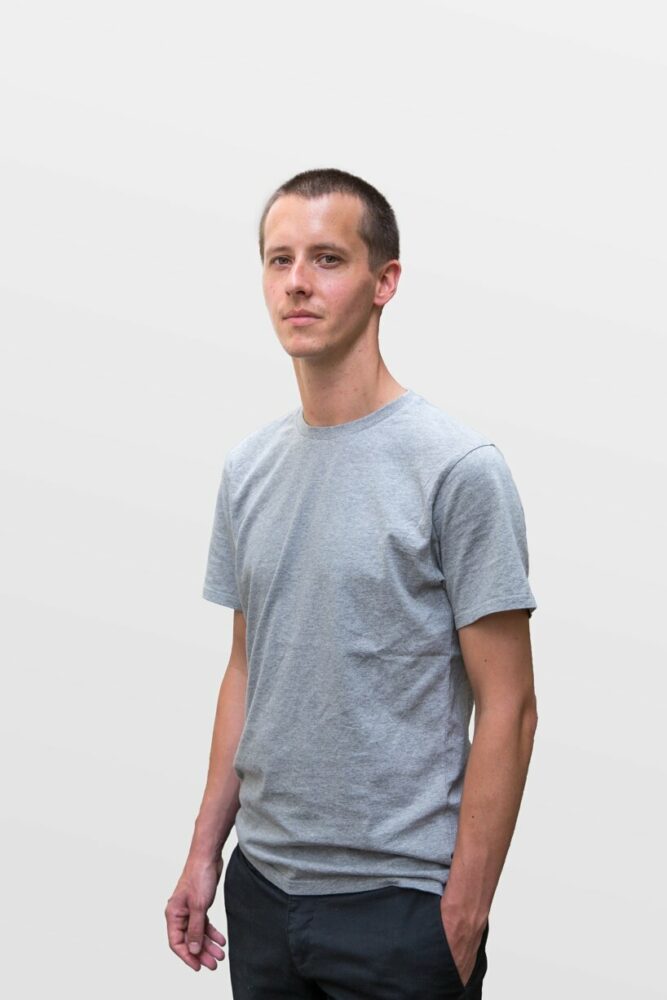
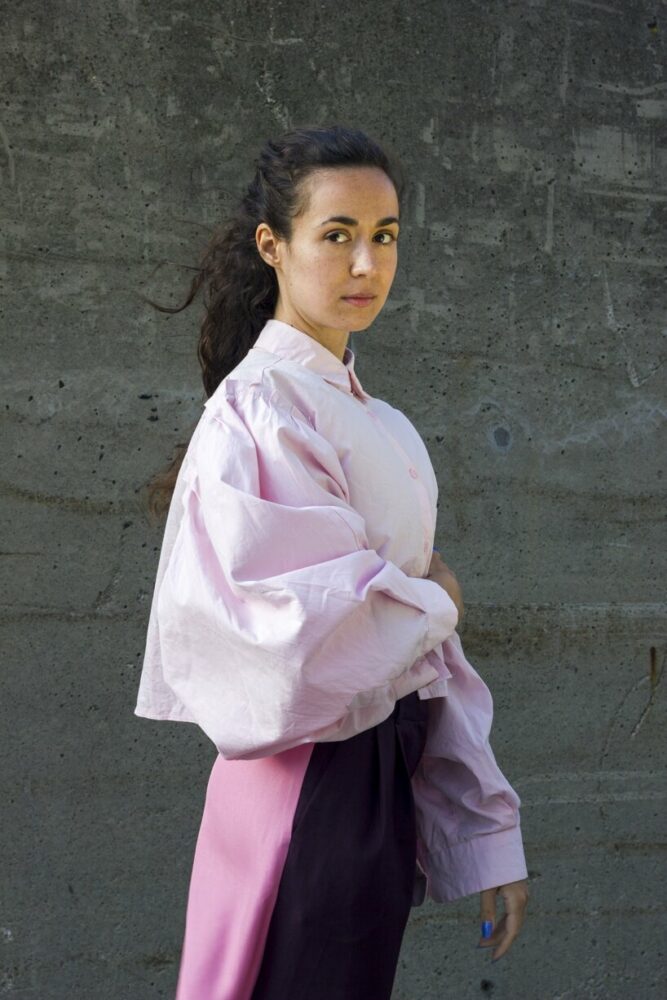
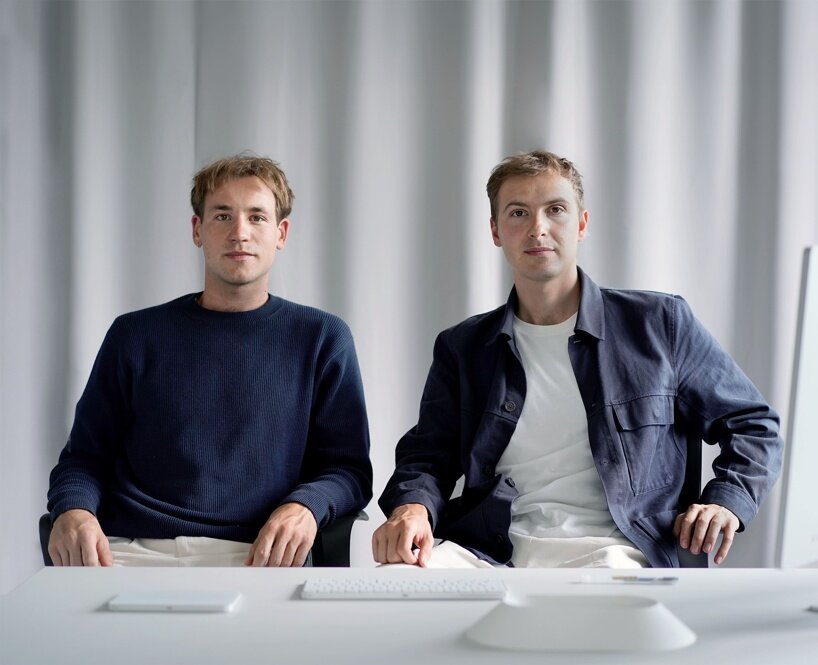
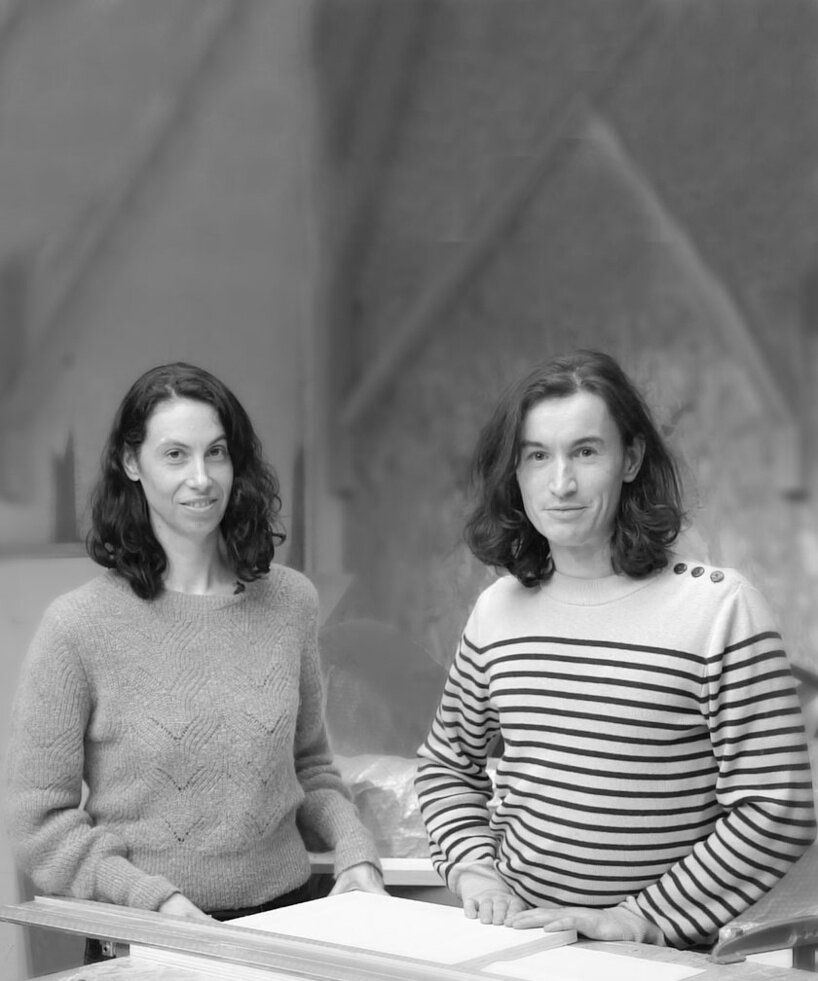
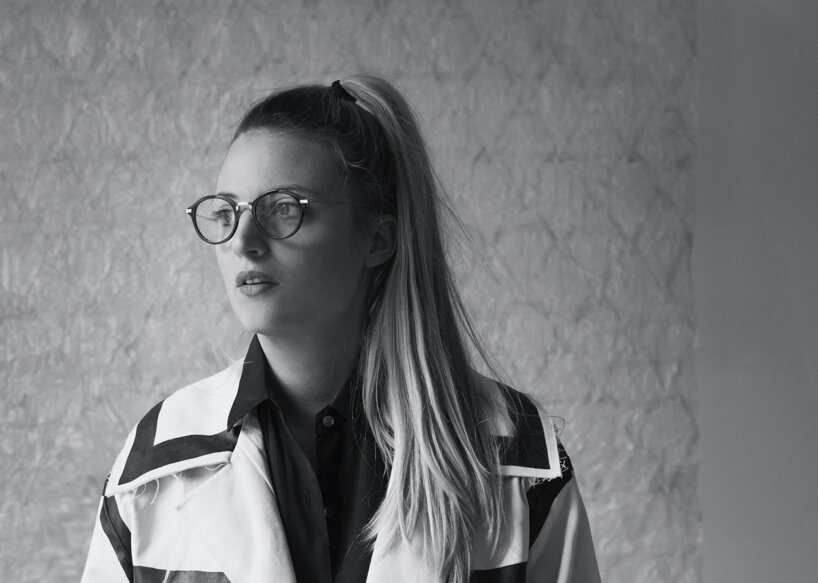
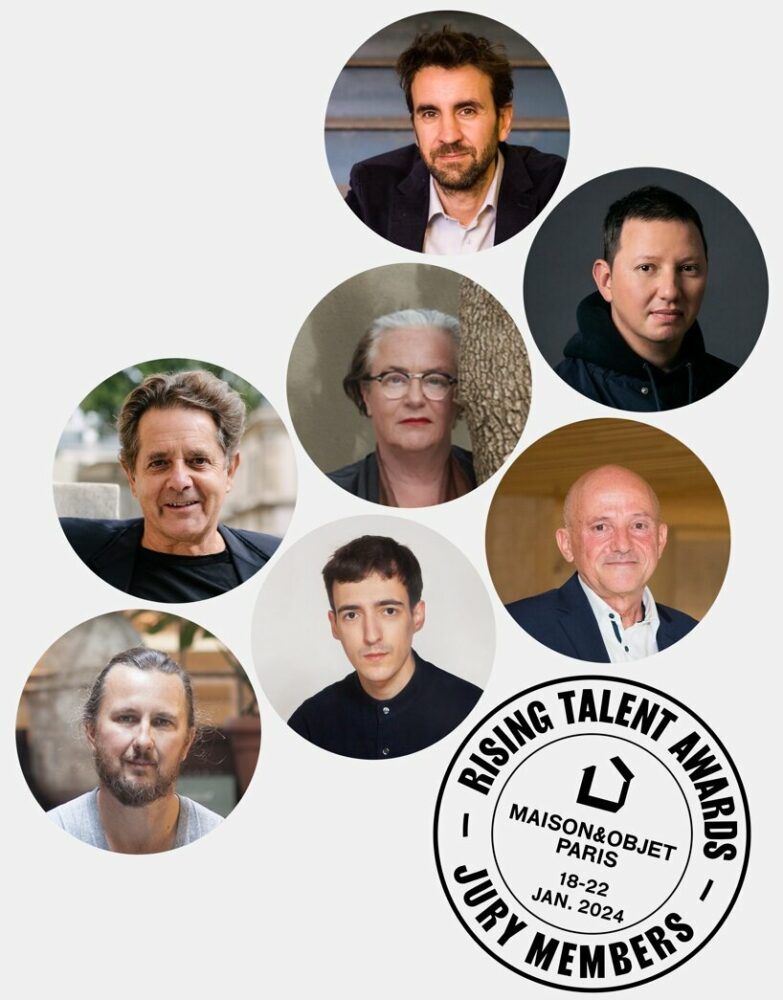
project info:
platform: Maison&Objet | @maisonetobjet
name: Rising Talent Award
edition: 2024
jury: Jean de Loisy; Li Edelkoort; Lionel Jadot; Joseph Grima; Athime de Crécy; Ramy Fischler; Stéphane Galerneau
rising talent craft winner: Raphaël Cuevas and Line Pierron (Line & Raphaël)
tech talents: Audrey Large; Felix Rasehorn and Robin Hoske (WINT Design Lab); Nelson Fossey (Index Office)
savoir-faire talents: Aurélie Hoegy; Jenna Kaës; Emma Cogné; Raphaël Cuevas and Line Pierron (Line & Raphaël)
theme: TECH EDEN: Towards a paradise regained
dates: January 18-22, 2024
happening now! thomas haarmann expands the curatio space at maison&objet 2026, presenting a unique showcase of collectible design.
